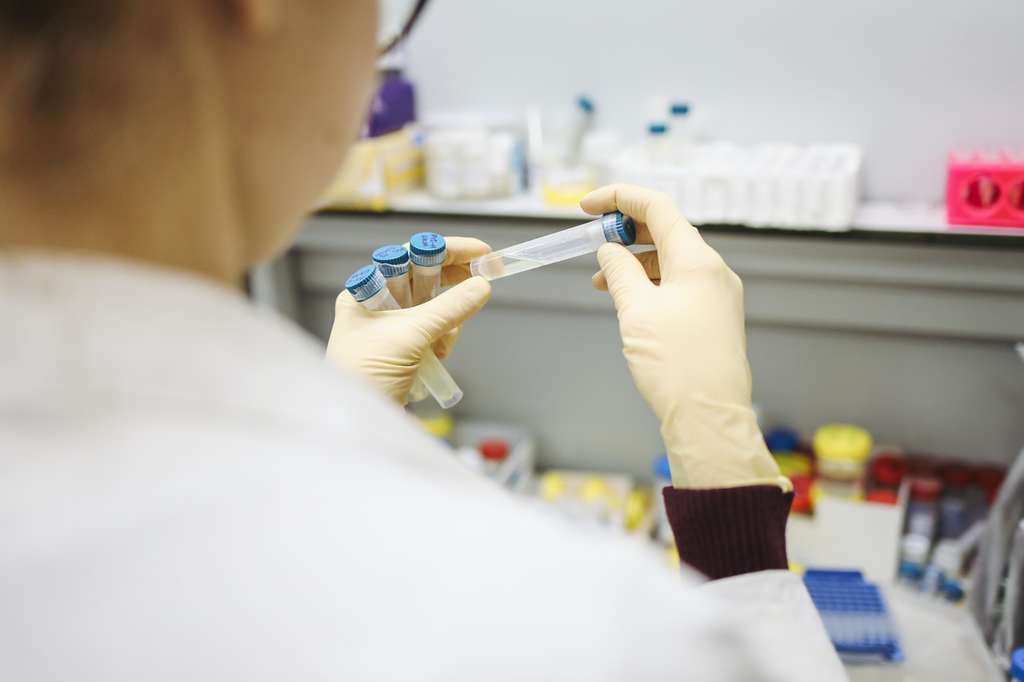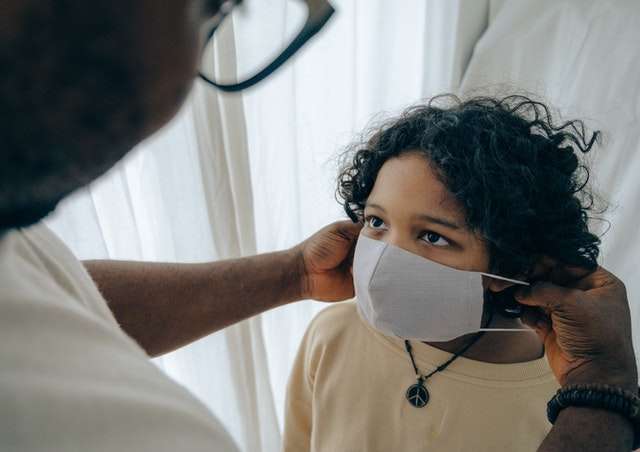I came to E7 health for a physical exam for employment. Staff was very professional, And I was in and out in thirty minutes
Read More
When is the Right Time to Test for COVID-19?
Posted: Sep 22nd, 2021 at 11:17AM

Almost a year and a half since the pandemic started, COVID-19 tests are gaining focus once again as the country (and a majority of the nations) is challenged with the biggest surge of new coronavirus strains.
With cases rapidly rising, more people are being tested, seeking out tests, or wondering if they should get tested.
Let's uncover some important details about COVID-19 testing.
The Types of COVID-19 Tests
Before we get into learning when the right time to test for COVID-19 is, let's first uncover the different tests available.
According to the CDC, there are two tests that you can take:
- A viral test lets you know if you are actively infected with COVID-19. This can be done as a saliva sample or nasal swab, via a nucleic acid amplification test (NAATs) or antigen test. e7 Health typically reports NAAT results either within two or 24 hours after the specimen is processed (depending on the test selected) and will email the results to you.
- An antibody test checks for past infections in individuals who may have had COVID-19 symptoms and have been exposed to the virus.
When Should You Get Tested for COVID-19?
The CDC notes that the virus has an average incubation time of four to five days. This could mean that getting tested immediately after a potential exposure would trigger a negative result even if you've been infected.
In reality, there is no one exact answer on the right time to get tested. It could vary depending on where you live and the current state in your area. Therefore, it's important to be vigilant in keeping track of the exposure sites, number of cases, and restrictions in your local community.
Similarly, people infected with COVID-19 may experience a wide range of symptoms that appear within two and 14 days after exposure. It’s crucial to get tested if you experience any of the following:
- Body or muscle pains
- Chills or fever
- Cough
- Diarrhea
- Difficulty breathing
- Fatigue
- Headache
- Loss of sense of taste or smell
- Nausea
- Persistent pain or pressure in the chest
- Runny nose
- Shortness of breath
- Sore throat
- Vomiting
Note that older adults and individuals with underlying medical conditions (such as diabetes, heart problems, or lung diseases) are at higher risk for developing more severe complications from COVID-19 infections.
In addition, you can use the Coronavirus Self-Checker, an interactive clinical assessment that assists individuals in deciding when to seek COVID-19 testing or medical care related to the virus. This online tool recommends actions and resources based on the users' responses.
Who Should Get Tested for COVID-19?
The CDC notes that there is a significant rise in asymptomatic cases and pre-symptomatic transmission. As such, individuals who fall under any of the following categories should get tested:
- Anyone who displays any of the symptoms regardless of vaccination status or prior infection.
- Close contact with a person with documented COVID-19 infection (within six feet for about 15 minutes or more than 24 hours).
- Individuals who take part in activities or have been in places that put them at high risk (cannot social distance, public transportation, travel, large social or mass gatherings, crowded environment, or poorly-ventilated indoor settings).
- Upon reference by your healthcare provider or state, tribal, or local health department.
If you get tested, it's vital to stay away from the public while waiting for the test results. Also, you need to follow the guidelines of your healthcare provider and public health professionals.
Why is COVID-19 Testing Important?
Effective testing for COVID-19 is crucial in slowing down the transmission and spread of the virus. It helps identify those who have the virus so they can be addressed properly — whether by treatment or quarantine. It's also essential as it helps scientists and health professionals learn more about the virus and how its impact can be reduced.
However, due to the ongoing shortage, it's important that testing is done efficiently. This means that only those who have cause for suspicion or are aware of their potential exposure are highly encouraged to get tested.

How to Get Tested for COVID-19
If you, your family, or anyone you know needs to get tested, the first step is to contact your healthcare provider. You can also find the latest news on COVID-19 testing on the website of your state, local, tribal, or territorial health department.
As they see fit, healthcare providers may recommend at-home collection kits or at-home tests if you are showing serious symptoms. This helps minimize the risk of exposure and transmission if you leave your house. This may also be done if you can't be tested by a healthcare provider or public health official for the time being.
The release of results can vary. Most people are able to receive their test results within 24 hours. Some are able to get them within minutes or a few hours. However, depending on where the test is sent, such as an outside laboratory, it could also take up to two weeks.
If you test positive, you need to follow the CDC's protective steps to prevent others from getting sick — including staying isolated, monitoring your symptoms, and keeping in touch with your doctor. If you test negative, you must continue to observe measures to protect yourself and others.
Just like observing proper hygiene, regular cleaning and disinfecting, practicing social distancing, and wearing masks as needed, getting tested at the right time is vital in reducing the impact of the COVID-19 virus.
For all your COVID-19 testing needs, e7 Health can help. We provide FDA-authorized antibody tests and RT-PCR tests for individuals and corporations who want to test their employees before they can return to work. We also offer FDA-authorized at-home PCR saliva tests, which enable you to avoid waiting in line or going to testing sites and potentially putting yourself (and others) at risk.
Contact e7 Health today to learn more.

Staff was extremely friendly, I was able to walk in without an appointment.
Read More
Very friendly, informative, and well versed. Felt well taken care of by the doctor and all the staff. Fast, friendly, considerate, all staff met.
Read More
I was here for an employment physical. They are amazing! I was in and out in less than 10 mins.
Read More
J was super helpful. Very quick and easy.
Read More
Rachel was amazing and I was in and out so quick ! Ready to start my new job ! Thanks 🥰
Read More
J was awesome at talking me through my first time getting blood taken. The doctor that also did my physical was quick and very thorough when letting me know the next steps for getting the test results back :)
Read More
Quick n staff very nice
Read More
















